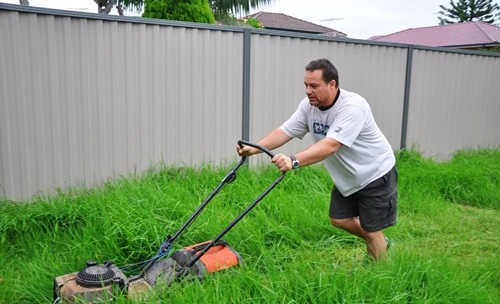No, it is not inherently illegal to mow your neighbor’s lawn, but doing so without their permission can lead to legal issues. While the act of mowing might seem helpful or harmless, property laws and boundaries must be respected. Unauthorized entry onto someone else’s property could potentially be considered trespassing, and disputes may arise over property rights and intentions.
Understanding the Legal Implications
1. Property Boundaries and Trespassing
- Mowing your neighbor’s lawn without permission might violate trespassing laws. Trespassing is defined as entering another person’s property without authorization, even if no harm is caused.
- If a neighbor explicitly objects or has previously set boundaries, entering their property without consent could lead to legal consequences.
2. Good Samaritan Acts vs. Legal Boundaries
- In some cases, mowing a neighbor’s lawn as an act of kindness may be welcomed. However, it’s essential to secure permission first to avoid misunderstandings.
3. Local Laws and HOA Regulations
- Some neighborhoods governed by homeowners’ associations (HOAs) or municipal codes may have rules about property maintenance, but these typically apply to the property owner rather than neighbors.
- Interfering with a neighbor’s property, even with good intentions, may still breach local regulations.
Potential Legal Consequences
1. Trespassing Charges
- While unlikely in most cases, mowing without permission could lead to accusations of trespassing. If a neighbor presses charges, the case might be handled as a civil or criminal matter depending on local laws.
2. Property Damage Claims
- If your lawn mower causes damage—such as tearing up landscaping, damaging sprinkler systems, or cutting into flower beds—you could be held financially liable.
3. Harassment Allegations
- Repeatedly mowing a neighbor’s lawn without consent, especially after being asked not to, could escalate to claims of harassment.
When Mowing a Neighbor’s Lawn is Acceptable
1. Explicit Permission
- The simplest way to avoid legal trouble is to obtain explicit permission from your neighbor. This can be a verbal agreement, but a written agreement may provide more clarity in case of disputes.
2. Helping Elderly or Disabled Neighbors
- Many communities value neighborly support, such as mowing lawns for elderly or disabled individuals. However, even in these situations, consent should be obtained beforehand.
3. Shared Property Lines
- For properties with unclear boundaries, neighbors often informally agree to split maintenance responsibilities. This mutual understanding can help prevent disputes over mowing areas near property lines.
How to Handle Neighborly Disputes
1. Communication First
Always discuss any plans to mow a neighbor’s lawn beforehand to ensure they’re comfortable with the arrangement.
2. Respect Boundaries
Avoid overstepping physical or personal boundaries. If a neighbor declines your offer, respect their decision.
3. Legal Mediation
If disputes arise, mediation through a neutral third party, such as a neighborhood association or a local mediator, can resolve conflicts amicably.
Related FAQs
Q1. Can I get in trouble for mowing part of my neighbor’s lawn by accident?
Ans: Accidentally mowing a small portion of a neighbor’s lawn is unlikely to result in legal trouble unless there’s damage or prior objections. Communication can often resolve such situations.
Q2. Is it illegal to mow a neglected lawn?
Ans: While you might want to help maintain a neglected property, doing so without permission can still be considered trespassing. Report issues to local authorities or HOAs if neglect becomes a concern.
Q3. What should I do if my neighbor mows part of my lawn without asking?
Ans: Discuss the matter with your neighbor to clarify boundaries and express your preferences. Most issues can be resolved through friendly communication.
Q4. Can an HOA require me to mow my lawn?
Ans: Yes, if you live in a community with an HOA, they may impose requirements for lawn maintenance. Failing to comply could result in fines or other penalties.
Q5. How do I handle disputes about property lines?
Ans: If there’s a disagreement about property lines, consult property surveys or title documents. For persistent disputes, legal mediation or a surveyor’s opinion can clarify the issue.
Conclusion
Mowing your neighbor’s lawn without permission is not inherently illegal, but it can lead to legal or personal disputes if property boundaries and consent are not respected. Always seek permission before performing maintenance on someone else’s property, and communicate openly to maintain good neighborly relationships. In cases of uncertainty, err on the side of caution and avoid crossing property lines.


